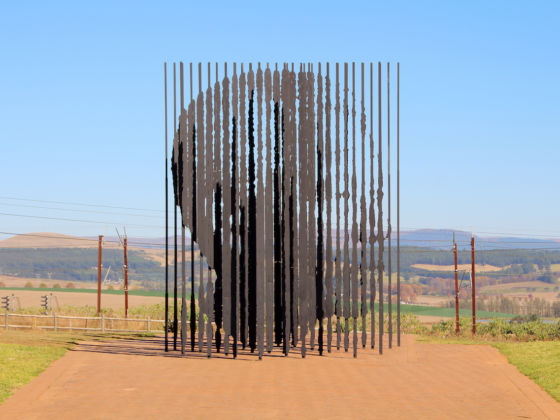It’s strange to watch gigabytes of already-written pieces explode across the internet. The digital thoughts of a planet of children who never got to speak aloud to dad. It’s not, perhaps, insensitivity, as much as raising the most beautiful treasures we could. Memories and stories polished in the last months, so that — when it was needed — clumsy words would hold nothing back.
These, too, are mostly words I wrote before. But I can sadly write no better, and am so very far away. So as a promise to the day I can leave a copy with my own hands, here they stand.
That dream — even as we lose you — remains everything. The debt that cannot be exchanged, dare not be forgotten, and demands of me things I’m only beginning to understand. People will call you a symbol. A national inspiration. A thousand other numbed phrases to renegotiate how much we haven’t lived up to what you imagined. Trying to capture you in stories to serve different, lesser, purposes.
Against those stories to come, here’s one of my own. It’s the only one I have.
I was a child then, 12 years old in an unexceptional white suburb two blocks and an open veld from Alexandra township. Those two blocks and the tall, orange grass were an unbridgeable gap between my childhood and a world I didn’t know existed. Sometimes that veld would burn, and we wouldn’t know it until the warm ash drifted down on our house.
Small, grey metaphors of that South Africa. Invisible. At least for a child.
But even I knew that something in the world was shifting when someone called Chris Hani died in 1993. It was clear in my parents’ faces as they watched the television. In the empty shelves in the supermarkets.
Every news broadcast or news column of those days was the ash of fires burning in places like Alexandra as we moved towards our national tipping point. The moment you could have chosen so very differently.
God knows you could have asked for justice over reconciliation for what the government did. For the fires in the townships. The children who died two blocks and an open veld away, instead of playing in pools and lawns. The lives disfigured by apartheid’s smouldering heart and its bloody, human hands.
You could have asked for justice. No, you could have demanded it, and watched a different South Africa unfold. But you didn’t.
Like some colossal sin-eater, you exchanged that justice — one you could have by rights so easily insisted on — for an entirely more transcendental dream. One of what we might be able to become if we — in a giant electoral theatre — suspended the settling of scores in order to try and build the most audacious embrace of each other’s dignity the world had ever seen.
And now, so many years on and checking my phone constantly for updates, I spin through differently elegant phrases to try and trap what it is that you mean to me. What did you do for that 12-year-old and the world that he lived in that really endures beyond the dogma of a rainbow nation? That lives despite how our leaders have failed us, and the dimming of what 1994 promised to be.
I wanted to say “you saved me.” But all the permutations rang hollow. Saved me from what? From apartheid? From oppression?
Or perhaps you saved me from what justice, rightfully and diligently pursued, would have meant. It was yours to ask for, then, and doing so would have changed everything for that 12-year-old Richard. For everything that justice would have exacted on his world.
Justice as reparation. Justice as violence. Justice as anything, in the wake of so large a crime, would have left me with a very different life.
Though he didn’t know it — as he didn’t know so much then — you bought that child his future. His skills, his voice, his power, and his privilege. There was much he worked hard to do for himself, sure, but all of it on top of an amnesty that few would have had the strength in their hearts to ask for.
You saved most of a nation from apartheid’s oppression. And you saved the rest from justice. That’s literally a gift of entire lives. Given for something very specific: a country defined by what is possible when we are the best of our imperfect selves. Not the best of the best of us, but the best of all of us. Because you were the imperfect man who could transcend a settling of scores in the hopes of freeing us all. Who imagined choosing forgiveness over a reckoning when so few could imagine it.
In those years when Hani died and the fires burned, you led us away from a dark, dark night, and towards the possibility of the country of our best selves.
We’ve failed, for the most part, either to be that best or to even acknowledge that debt to you. In your silent years, you became the Atlas on whose shoulders we’ve built fairy tales of our history, in which sacrifices are over, debts squared, and you a cuddly, symbolic teddy bear in whose memory we too often kept warm. Even as our leaders began to dream different, selfish dreams, and the storms began to gather.
Yours is the hand that South Africa held on its journey from our dark past to something entirely more human. Our reassurance that the victory of love, empathy, and compassion was inevitable. Now your hand slips.
The air is cold. The storms are coming. And we’re afraid we might at last stand alone.
But the 12-year-olds are adults now. We can see the fires, and we will not be stayed.
There is a debt to repay, and far so far yet to walk.
So help us god, we will help finish your journey.
